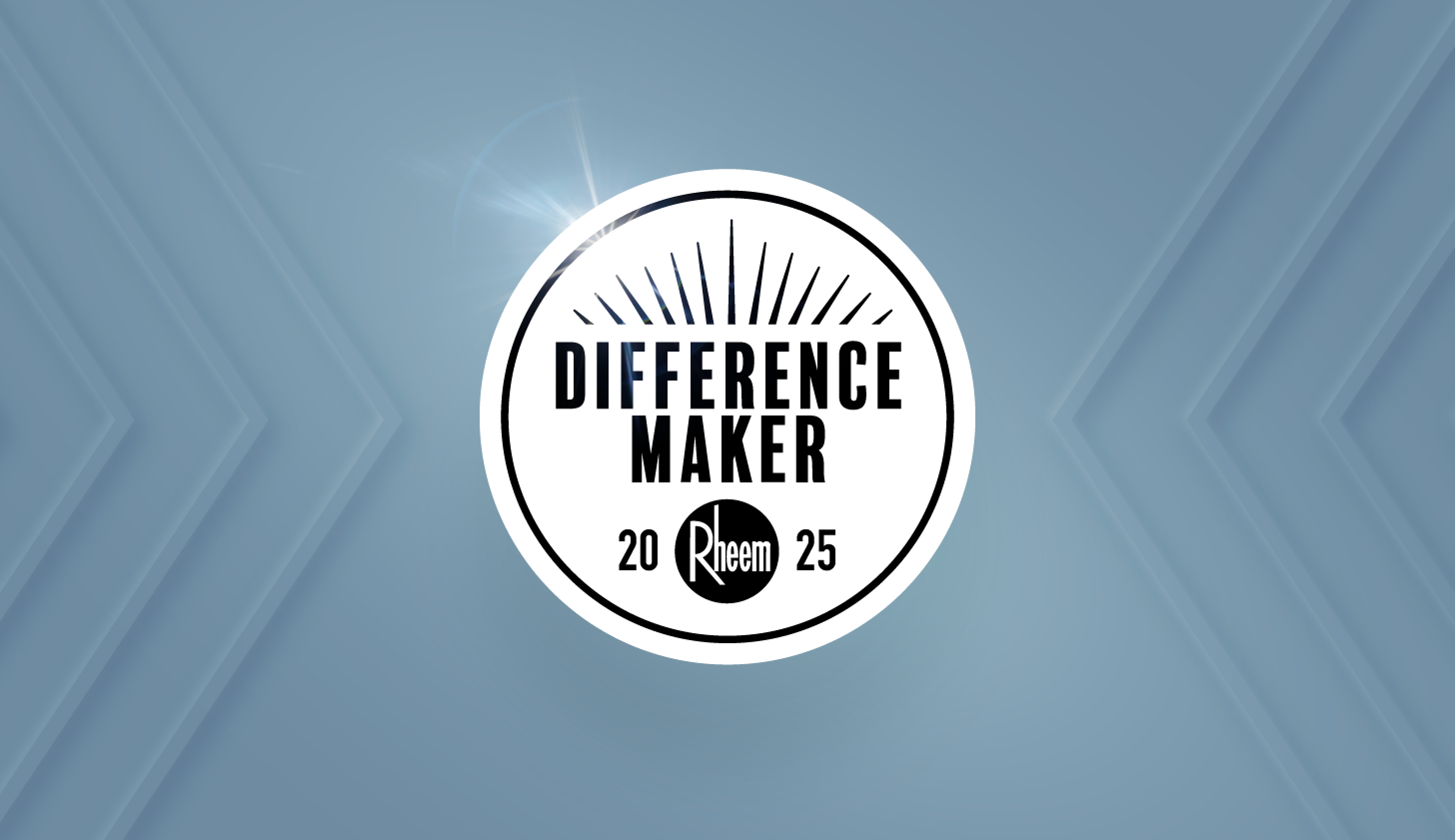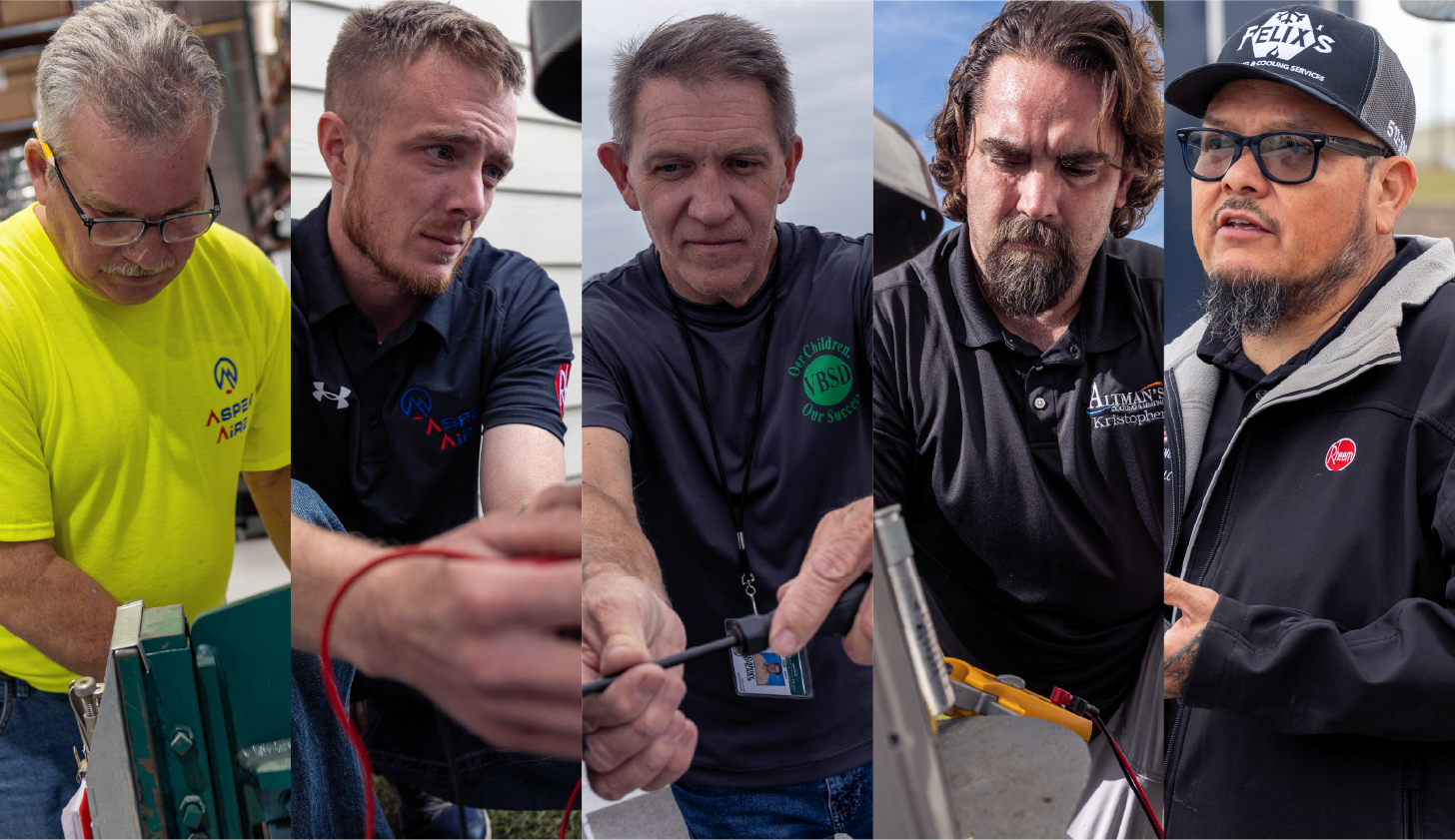Exploring Heat Pump and Gas Tankless Water Heaters: A Side-by-Side Look
October 14, 2025
When it comes to choosing a new water heater, most homeowners are faced with the same essential question: Which type offers the best combination of performance, efficiency, and value for my home?
Today, there are two types of water heaters that are gaining popularity: heat pump water heaters and gas tankless water heaters. Both offer modern, energy-efficient solutions, but they work in different ways and excel in different situations.
In this comparison, we’ll break down the strengths of each system, so you can choose the one that best fits your home, climate, and usage patterns. By the end, you’ll be ready to take advantage of current rebates and incentives with confidence.
Which Factors Should You Consider When Choosing a Water Heater?
Your water heater affects much more than just your morning shower. It impacts your utility bills, home comfort, and even the complexity of installation. This guide walks through the available high-efficiency water heater options, focusing on the performance, cost, climate compatibility, and energy use of each. Understanding how gas water heaters and heat pump water heaters work will help you make a smart long-term investment, regardless of which system you choose.
How Do Heat Pump Water Heaters and Gas Tankless Systems Work?
Heat pump water heaters work by transferring heat from the surrounding air into a tank of water. Because they don’t generate heat directly, they offer outstanding energy efficiency in the right environment. They’re part of a growing trend in water heating that prioritizes efficiency over just raw output. (See “What is a Heat Pump Water Heater?” for more details.)
Gas tankless water heaters use a burner to heat water only when needed. When you turn on the tap, cold water flows through the unit and is instantly heated. With no storage tank required, they deliver a continuous supply of hot water on demand, which is ideal for households and families with high usage.
Efficiency and Operating Costs
Energy Efficiency
- Heat pump water heaters are typically 2-4 times more efficient than traditional systems. They’re especially effective in moderate to warm climates and are often the most energy-efficient option available.
- Gas tankless water heaters are up to 1.5 times more efficient than standard gas tanks and are great for homes needing a high volume of hot water.
Operating Costs
- Heat pump water heaters have annual operating costs that usually range from $100 to $600, depending on local electricity rates and usage patterns.
- Gas tankless water heaters have operating costs that typically fall between $200-$450 per year, with efficiency influenced by local gas prices.
Life Expectancy
Both systems are built to last. Gas tankless units typically have a lifetime of 15-20 years, while heat pumps average around 10-15 years, though this can vary with maintenance and usage.
How do These Systems Perform in Different Climates?
Heat pump water heaters perform best in moderate to warm climates, though they can definitely be used in colder areas as long as they have the right setup. These systems are ideally installed in locations where the ambient temperature stays above 40°F, like a garage, basement, or utility room with sufficient air volume and circulation.
Gas tankless water heaters work well in all climates, including colder regions, since they are not affected by their surrounding air temperature. These units are versatile for installation, working indoors or outdoors with proper weatherproofing, and fit well into compact spaces thanks to their wall-mounted design.
What Are the Installation Requirements?
Heat pump water heaters are best suited for homes with a basement or a dedicated mechanical room. Installation is typically straightforward, and you’ll need space for airflow and in case there are minor electrical updates or upgrades to be made.
Gas tankless water heaters have an installation that can be more involved and may require upgrading gas lines, venting, or electrical panels. However, homeowners who need performance in a tight fit often find that the performance benefits outweigh the additional complexity.
Need help planning your install? Contact a local plumber today.
What Current Rebates and Tax Credits Are Available?
Thanks to the Inflation Reduction Act of 2022, heat pump water heaters are eligible for a federal tax credit equal to 30% of installation costs, up to $2,000. These water heaters also often qualify for state and utility rebates, making them an appealing option for budget-conscious households.
Energy Star certified tankless gas water heaters are also eligible for federal tax credits for 30% of installation costs up to $600 under the Inflation Reduction Act of 2022. Additional local and utility rebates may apply as well. If you already have a gas setup, this could be a cost-effective choice.
Check out Rheem’s rebate center to find out what savings are available in your area.
Key Strengths of Heat Pump and Gas Tankless Water Heaters
Just like choosing between two great kids, you don’t have to pick a favorite. Choosing a water heater for your home is all about finding the right match for your needs. Here’s a quick recap of the two types of water heaters we covered and their strengths:
Heat Pump Water Heaters
- Extremely energy-efficient (2-4x more than traditional systems)
- Lower annual operating costs in many regions
- Qualify for federal tax credits and many state incentives or local rebates
- Ideal for moderate to warm climates
- Great for homes with available installation space, like basements or utility rooms
- Environmentally friendly, using ambient air to heat water
Gas Tankless Water Heaters
- Provide continuous, on-demand hot water, even for large households
- Perform well in all climates, including colder regions
- Compact, wall-mounted design that saves space
- Qualify for federal tax credits and many state incentives or local rebates
- Long lifetime (typically 15-20 years with proper maintenance)
- Can be installed indoors or outdoors with appropriate weatherproofing
- Great for households with high or frequent hot water usage
Both are among the top recommended water heating systems. Whether you’re focused on efficiency, environmental impact, or performance, there’s a solution designed to meet your specific needs.
Still unsure? Visit Rheem’s Water Heater Selection Tool to explore models and see which rebates may apply in your area.







